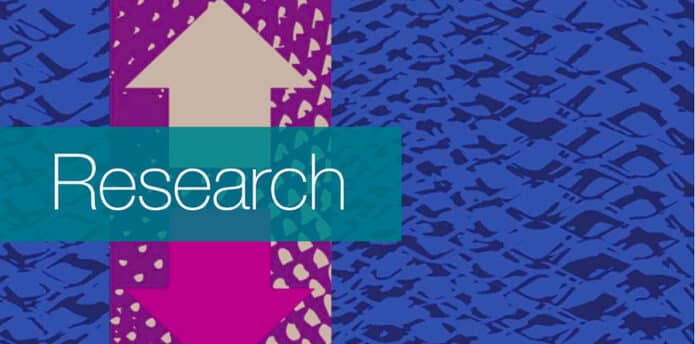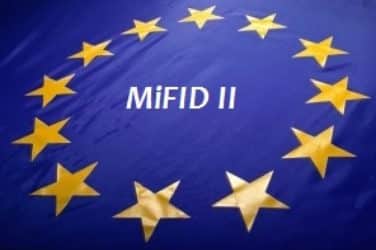
SIFMA issued the following statement from president and CEO Kenneth E. Bentsen, Jr. on the Securities and Exchange Commission’s (SEC) refusal to extend the relief provided in its 2019 Markets in Financial Instruments Directive II (MiFID II) No-Action Letter (NAL):
“SIFMA is disappointed with the Securities and Exchange Commission’s (SEC) refusal to extend the relief provided in its 2019 Markets in Financial Instruments Directive II (MiFID II) No-Action Letter (NAL). This lack of action negatively impacts the competitiveness of U.S. markets and research providers, and poses a significant risk that impacted buyside managers will lose access to important research services. The relief has been critical to addressing the conflicts of law problem that arises between the current MiFID II requirement for investment managers to make separate, unbundled payments for research and the application of the Investment Advisers Act to any U.S. broker-dealer that accepts such separate, unbundled payments for research. Despite best efforts, the industry has not found a viable solution that works for all U.S. broker-dealers that addresses the conflicts of law problem presented by MiFID II in the U.S.
“By failing to extend the NAL, the SEC is now allowing a European requirement that conflicts with U.S. law to directly affect U.S. broker-dealers, even though the European requirement is in the process of being dramatically revised. Importantly, the SEC is also ignoring multiple bipartisan Congressional requests to extend the NAL and conduct a study to evaluate the potential impacts on markets and investors of the letter’s expiration. We continue to believe SEC should take steps to extend the relief provided in the NAL. Such a step would preserve the breadth and depth of research that broker-dealers provide, including research about smaller issuers seeking to raise capital, which is vital to maintaining the competitiveness and efficiency of the U.S. capital markets and promoting informed investment decisions by institutional investors.”
Source: SIFMA
.@SECGov, ignoring multiple bipartisan Congressional requests, refused to extend the relief granted in its #MiFIDII No-Action Letter. This lack of action negatively impacts the competitiveness of US markets and research providers. Our full statement: https://t.co/upUKsisp8o pic.twitter.com/7BJmWTPpQJ
— SIFMA (@SIFMA) July 5, 2023
SEC Commissioner Mark T. Uyeda’s Statement On The Expiration Of The SEC Staff No-Action Letter Re: MiFID II
Broker-dealer investment research serves an important function by contributing to a richer information environment for market participants, particularly by providing analysis that can assist investors in digesting the increasing amount of regulatory disclosures from public companies. In so doing, sell-side research plays a role in the efficient market hypothesis and promotes price discovery.
n the United States, asset managers typically pay for sell-side research through bundled client payments for brokerage commissions and research, i.e., “soft dollar arrangements.” However, in 2018, the European Union’s Markets in Financial Instruments package (“MiFID II”) generally required European and U.K. asset managers to change how they paid for sell-side research. Instead of using soft dollar arrangements, these managers were required to pay for this research from their own assets, or from a research payment account funded with client assets, or some combination.
Capital markets financial services are increasingly a global business and MiFID II presented challenging conflicts of law issues as to how U.S. broker-dealers could be paid for research. To this end, the SEC staff issued relief in the form of a no-action letter to permit broker-dealers to receive separate payments for research without being subjected to regulation as investment advisers (“MiFID II Relief”).[1] The MiFID II Relief expired on July 3, 2023. However, unintended effects resulting from MiFID II have prompted the European Union and the United Kingdom to consider whether to ease the unbundling requirements to help facilitate capital formation for smaller companies, among other considerations.
I am disappointed that the SEC staff has decided not to extend the MiFID II Relief for a modest additional period to accommodate these potential changes. The MiFID II Relief sought to resolve a conflicts of law issue caused extraterritorially, and an extension would have been consistent with that approach.
I am also concerned that the expiration of the MiFID Relief will make it more difficult for U.S. broker-dealers to provide research. While sell-side research has its inherent conflicts of interest, significant restrictions that result in a dearth of sell-side research can result in the outsized prominence of other less credible sources, such as internet speculation, that can impact market prices and increase volatility and for which SEC oversight may be limited. This result can have adverse consequences for mid-sized and smaller public companies.
In this regard, the SEC is long overdue for a holistic review of the regulatory framework for investment research. Such an effort should include consideration of rules to replace the global research analyst settlement with 12 major broker-dealer firms, which was instituted 20 years ago. The SEC should also consider harmonizing, where appropriate, the different rules for research analysts for various communications with a view to facilitating investment research. Inappropriate and poorly-designed restrictions on investment research resulting in a more ill-informed marketplace serve neither investors nor public companies.
Source: SEC






